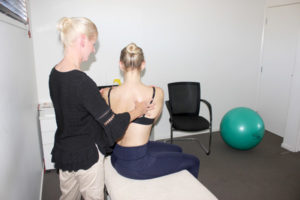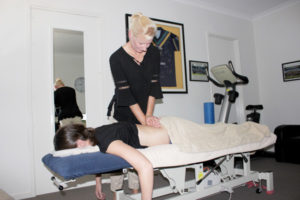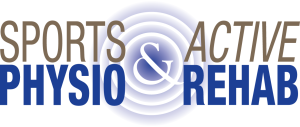

Spinal and musculoskeletal dysfunctions are conditions affecting muscle, joints, ligaments, nerves, tendons and bones, or, more commonly, a combination of each. Examples of possible conditions included under the musculoskeletal umbrella include arthritic symptoms, neck and back pain and dysfunctions, pre and post- surgical rehabilitation, fractures and dislocations, pelvic pain, referred pain, disc injuries, headaches, posture and alignment issues and inflammatory conditions like capsulitis, to name a few.
Physiotherapists adopt a diverse range of approaches in the management of your condition appreciating the affect local injuries/dysfunctions can have on entire body systems.
We allow 45 minutes for our initial appointments to ensure an accurate diagnosis. During this consultation, we will provide an in-depth explanation of your condition and realistic recovery timeframes. Understanding of your status is incredibly important for a positive outcome.
Exercise is the essence of rehabilitation. Improved muscle strength and balance unloads the the injured tissue, creating an environment for healing and repair. This may involve motor control training, muscle re-education progressing to muscle strengthening and conditioning.
To further enhance your recovery, we adopt a ‘hands-on’ approach with treatment. Spinal or peripheral joint mobilisation or manipulation, myofascial or soft tissue release techniques, neurodynamic mobilisation, dry needling, taping and bracing may be implemented. Throughout, consideration is given to the affect surgery or prolonged dysfunction may have had on your pain responses and central neural sensitivity.
To optimise your rehabilitation, you may require a referral to our multidisciplinary team, diagnostic imaging, Podiatry or medical specialists.
Our physiotherapists are constantly investing time and resources researching the latest treatments, techniques and optimum practise approaches to your management aiming to restore you to your functional best.


